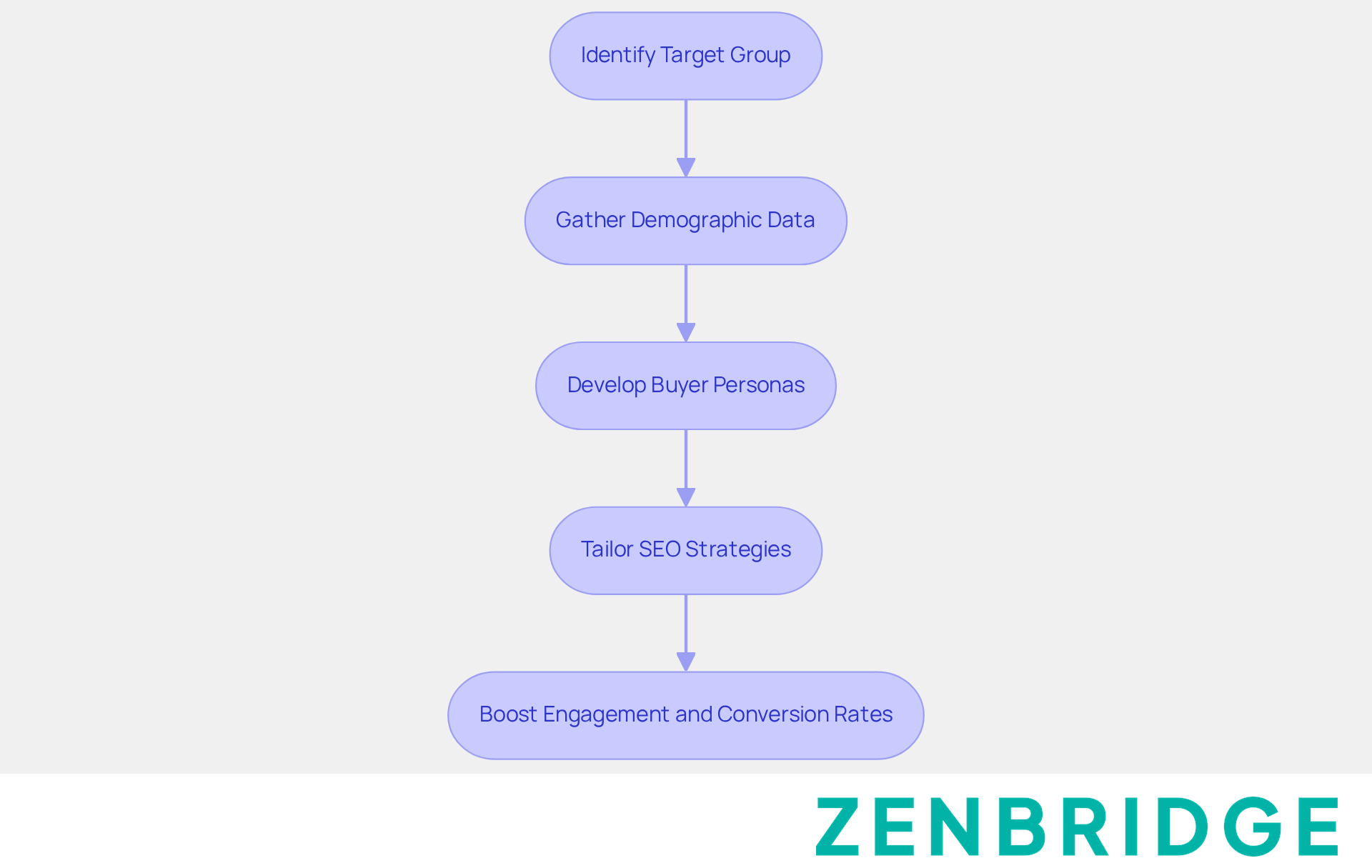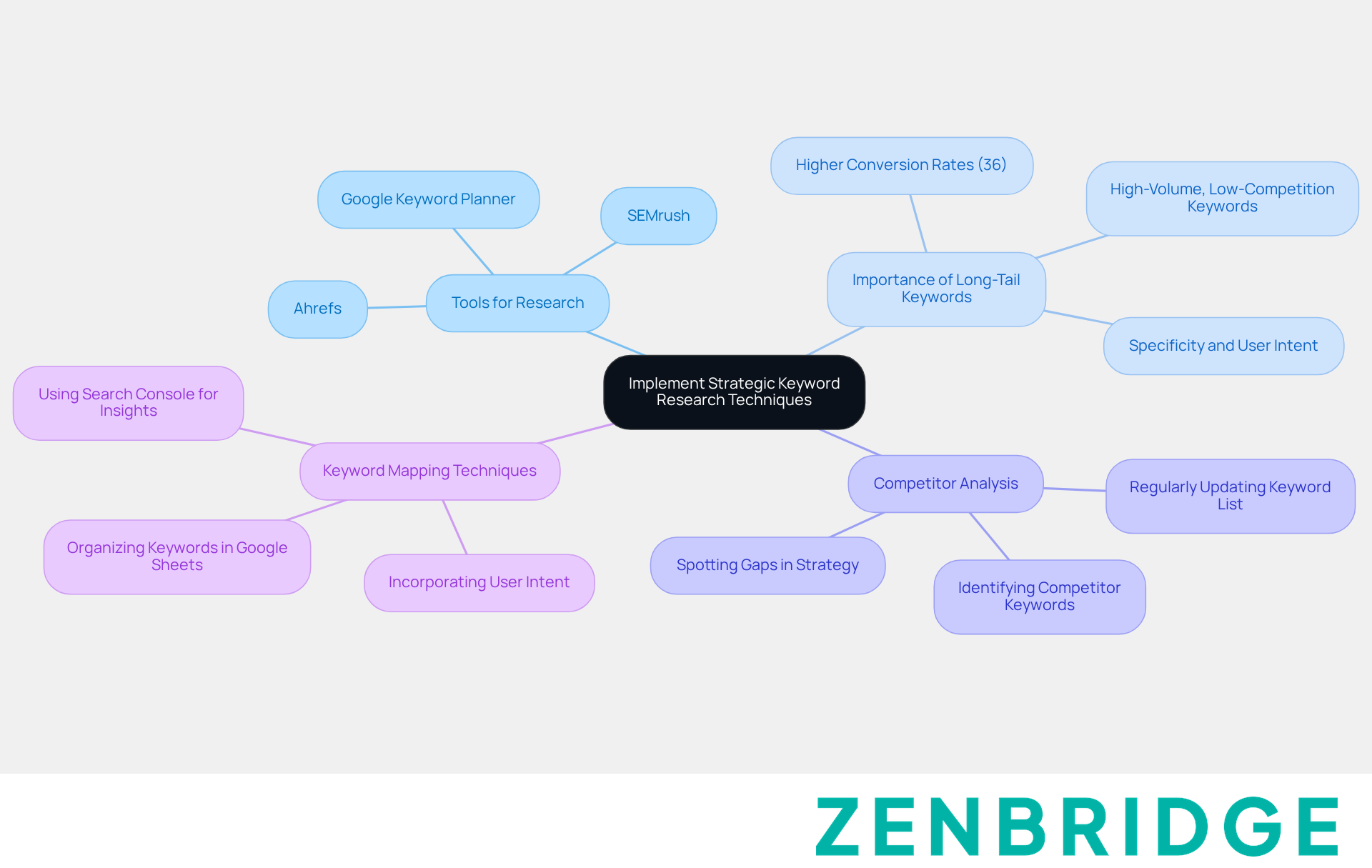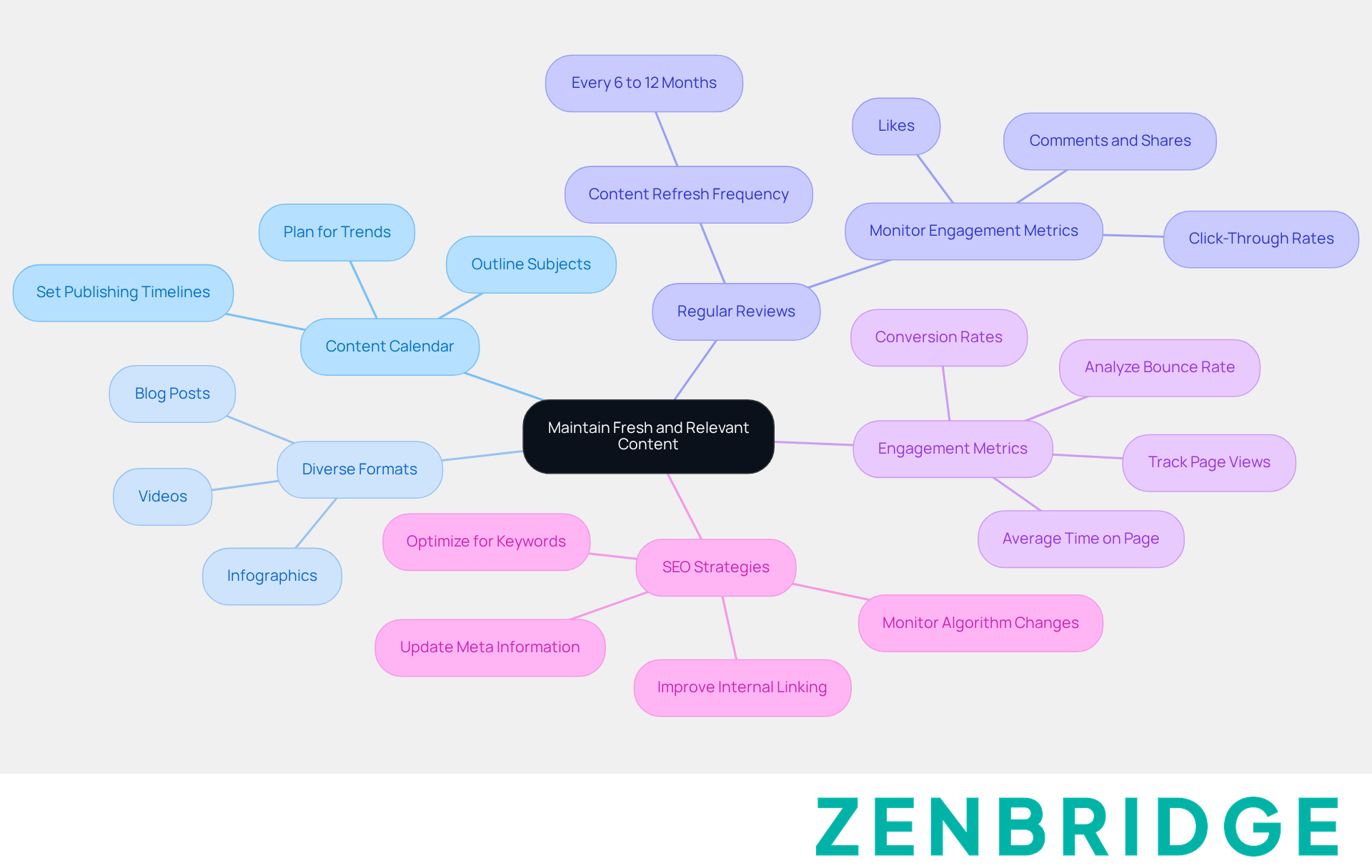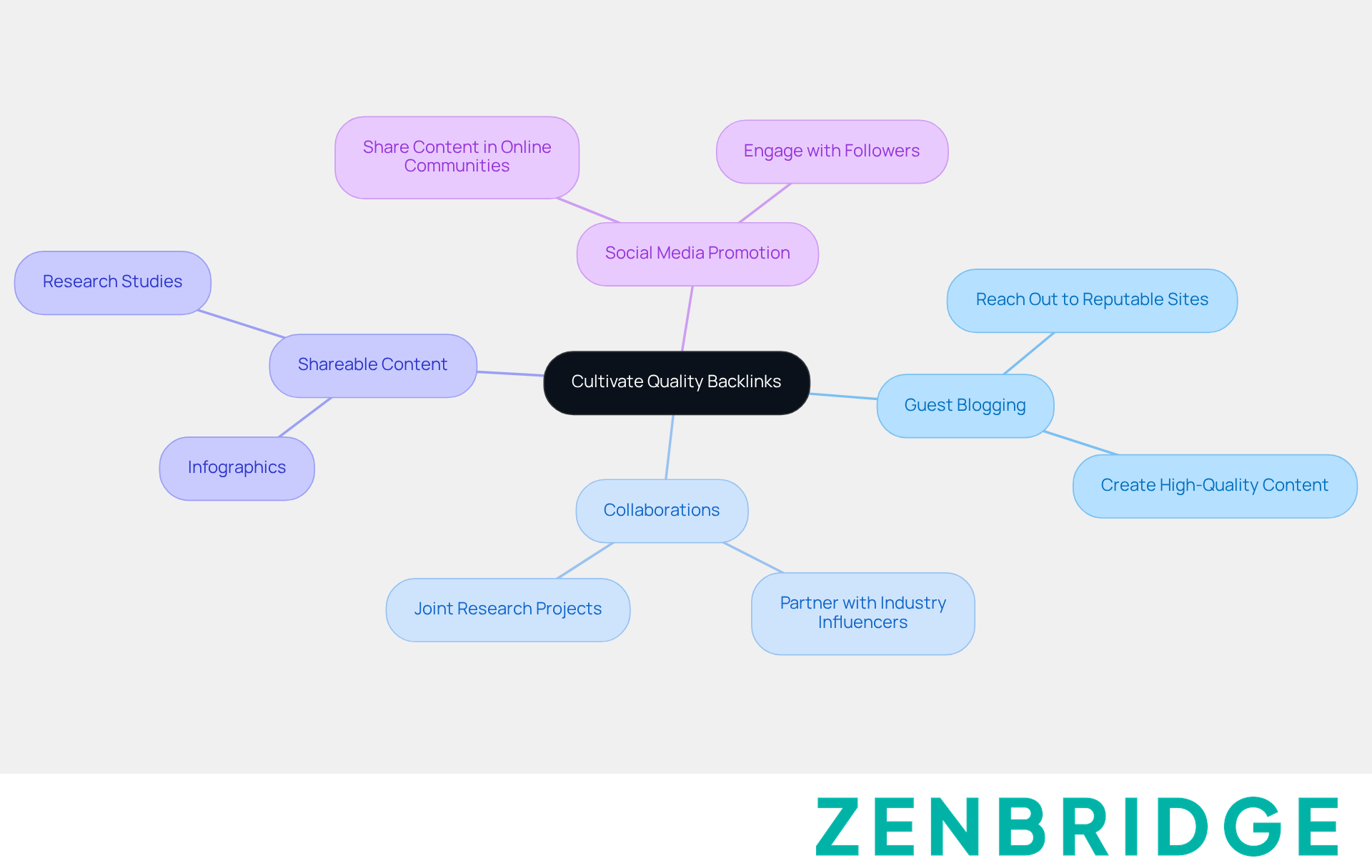
4 Best Practices for Australia Website Optimisation Success

Key Highlights:
- Identify your target audience using tools like Google Analytics and social media insights to develop detailed buyer personas.
- Tailor SEO strategies to specific demographics, such as focusing on local SEO for small business owners in Australia.
- Utilise keyword research tools like Google Keyword Planner and SEMrush to find high-volume, low-competition keywords, especially long-tail keywords.
- Conduct competitor analysis to discover effective keywords and identify gaps in your strategy.
- Maintain a content calendar to produce diverse, high-quality material that addresses audience interests and keeps content fresh.
- Regularly update older content to enhance user experience and improve SEO rankings.
- Cultivate quality backlinks by collaborating with reputable sites and promoting shareable content through social media.
- Building a strong backlink profile increases website authority and visibility in search engine results.
Introduction
In today's fast-paced digital world, the success of your website really comes down to how well it can adapt and optimise. Australian businesses, in particular, have some unique challenges that call for a smart approach to website optimization.
So, let’s dive into four essential best practises that not only boost your visibility and engagement but also help drive growth in a competitive market.
As the online space gets busier and busier, you might be wondering: how can businesses make sure their strategies really connect with their target audience and stand out in search results?
Understand Your Target Audience for Effective SEO
To enhance your website efficiently, let’s start by clearly identifying your target group. You can leverage tools like Google Analytics and social media insights to gather comprehensive demographic data, interests, and online behaviours. From there, develop detailed buyer personas that encapsulate your ideal customers, including their pain points and motivations. This foundational understanding will guide your SEO strategy, ensuring that your content resonates with the particular needs and desires of your target group.
For instance, if your target demographic consists of small business owners in Australia, you’ll want to prioritise local SEO strategies that focus on Australia website optimisation to tackle their specific challenges, like improving online visibility and drawing in local clients. By tailoring your approach based on these audience insights, you can significantly boost engagement and conversion rates. Ultimately, this will drive growth for your business. You know what I mean?

Implement Strategic Keyword Research Techniques
Hey there! Effective keyword research is crucial for Australia website optimisation and for driving the right kind of traffic. To get started, check out tools like Google Keyword Planner, SEMrush, or Ahrefs. These can help you find those high-volume, low-competition keywords that match your services perfectly. And don’t forget to prioritise long-tail keywords! These specific phrases reflect what your customers are really looking for, and they usually lead to higher conversion rates—think around 36%! So instead of going for a broad term like 'marketing services,' why not focus on something more precise, like 'AI-driven marketing solutions for small businesses in Australia'? This way, you’re not just enhancing relevance; you’re also boosting your chances of ranking higher in search results.
Now, let’s talk about competitor analysis. It’s a great way to discover which keywords your competitors are nailing, and it can help you spot gaps in your own strategy. Knowing what keywords they target gives you valuable insights into your market landscape. Don’t forget to regularly update your keyword list, too! Staying aligned with evolving trends and customer preferences is key. Did you know that long-tail keywords make up about 92% of all searches? That’s huge! They’re a vital part of any small business SEO strategy. By following these tips, you can really amp up your online visibility through Australia website optimisation and attract more qualified leads. So, what do you think? Ready to dive in?

Maintain Fresh and Relevant Content Regularly
To enhance your website efficiently, let’s create a calendar that clearly outlines subjects, formats, and publishing timelines. The goal here? Produce high-quality, informative material that answers your audience's questions and interests. Mix it up with diverse formats like blog posts, videos, and infographics to cater to different preferences.
For instance, if you notice a trend in inquiries about AI in marketing, why not create a series of articles or videos that dive deep into this topic? Plus, don’t forget to regularly review and refresh older content to keep it relevant and accurate. This practise not only boosts user experience but also significantly increases your site's credibility in the eyes of search engines. Fresh material signals to them that your site is active and providing up-to-date information.
In fact, new content can really enhance engagement metrics like likes, click-throughs, comments, links, and shares. And hey, regularly checking your links and resources can also improve user experience and SEO rankings.
Looking ahead to 2025, having a solid strategy for information is crucial for building and maintaining authority in a competitive digital landscape. As Neil Patel says, "SEO, in a nutshell, is the art and science of pleasing search engines." So, steer clear of common pitfalls like leaving outdated information or keyword stuffing. This way, you can ensure your material remains effective and engaging. You know what I mean?

Cultivate Quality Backlinks to Boost Authority
Building a solid backlink profile is super important for boosting your website's authority. So, let’s start by finding some reputable sites in your industry. Reach out to them for guest blogging opportunities or collaborations—it's a win-win! You can also create shareable materials, like infographics or research studies, that others will want to link to.
Now, don’t forget about social media! Use those platforms to promote your content and connect with industry influencers who can help amplify your reach. For instance, if you put out a comprehensive guide on AI marketing strategies, share it with relevant online communities and forums. The more quality backlinks you snag, the higher your site will climb in search engine results, which means more visibility and traffic for you. How great is that?

Conclusion
Optimising your website for success in Australia? It’s all about a comprehensive approach! You’ll want to understand your target audience, dive into strategic keyword research, keep your content fresh, and build those quality backlinks. Each of these elements is key to boosting visibility, engagement, and, of course, conversions.
First off, by pinpointing your target demographic and tailoring your SEO strategies to fit their needs, you can really connect with your audience. Using the right tools for keyword research means you’ll hit the mark with the phrases that matter, attracting the right traffic. Plus, regularly updating your content keeps things relevant and builds your credibility with search engines. And let’s not forget, a solid backlink profile boosts your authority and helps improve those all-important search rankings.
In today’s fast-paced digital world, putting these best practises into action for your website optimization in Australia is crucial if you want to stay ahead of the competition. Embracing these strategies not only enhances your online visibility but also helps you forge deeper connexions with your audience, paving the way for sustained growth and success. So, why wait? Taking action now will set you up for a thriving online presence in the years to come!
Frequently Asked Questions
Why is it important to understand your target audience for SEO?
Understanding your target audience is crucial for effective SEO as it helps you create content that resonates with their specific needs and desires, ultimately improving engagement and conversion rates.
What tools can I use to gather information about my target audience?
You can use tools like Google Analytics and social media insights to gather comprehensive demographic data, interests, and online behaviours of your target audience.
What are buyer personas and why are they important?
Buyer personas are detailed profiles that encapsulate your ideal customers, including their pain points and motivations. They are important because they guide your SEO strategy and help tailor your content to meet the needs of your audience.
How can understanding my target audience improve my SEO strategy?
By understanding your target audience, you can develop tailored SEO strategies, such as local SEO, that address specific challenges faced by your audience, leading to improved online visibility and higher conversion rates.
Can you give an example of how to apply audience insights to SEO?
If your target demographic consists of small business owners in Australia, you would prioritise local SEO strategies that focus on optimising your website for Australian users to address their specific challenges, such as improving online visibility and attracting local clients.

